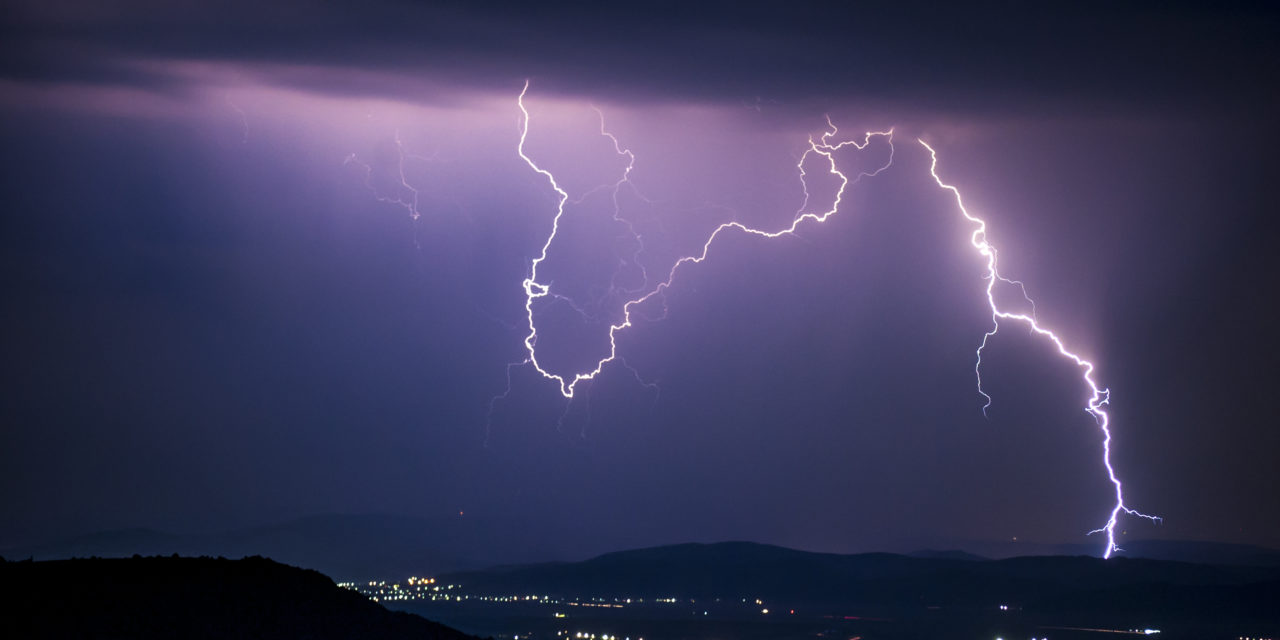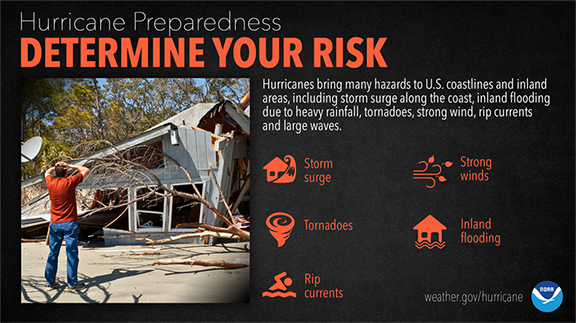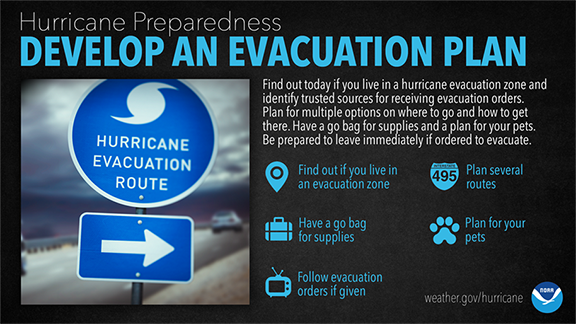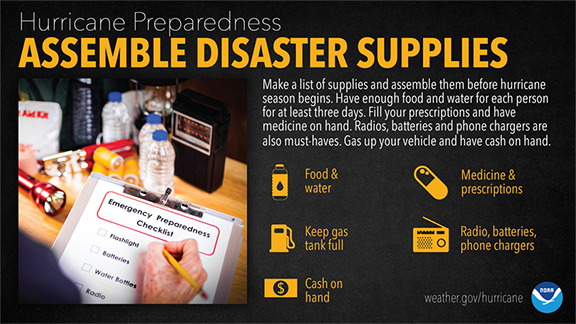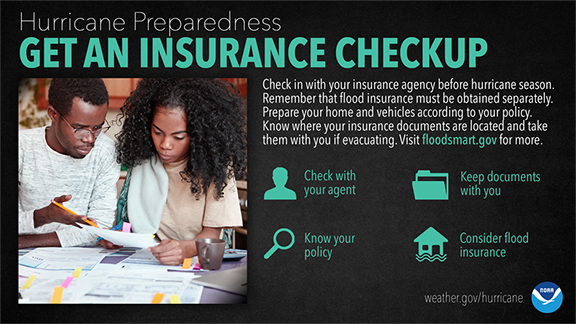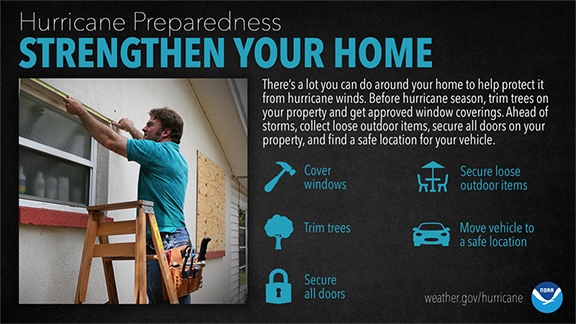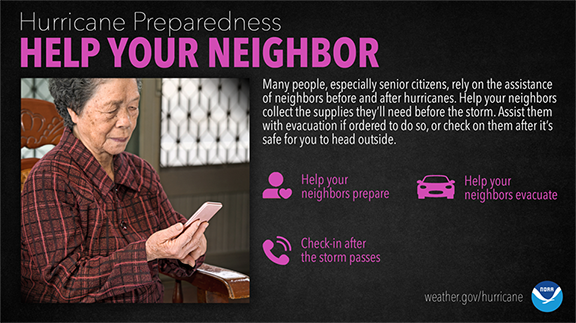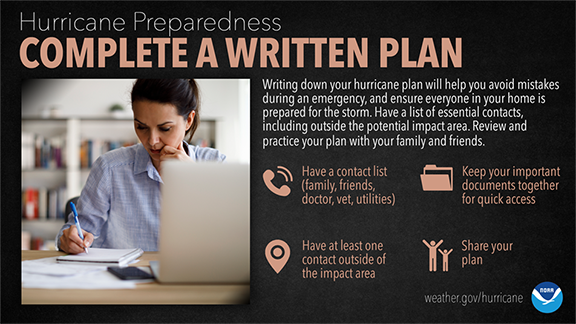Hurricane Preparedness
Texas Southmost College’s Office of Environmental Health, Safety and Risk Management keeps the college community up to date on developing and approaching storms. Information on the current campus emergency level, closings and re-openings, department emergency plans, employee recall information, and links to the National Weather Service’s National Hurricane Center, the National Oceanic, and Atmospheric Administration are also listed.
Announcements and updates prior to, during, and after a storm will be sent to all faculty, staff members and students from the Emergency Operations Team. Inclement weather information will also be posted on the college’s web page. Return-to-campus notification will be posted on the college web page, sent via email, by text notification, (to students and employees registered in the Emergency Notification System), and through the local media outlets.
For more information, contact the TSC Office of Environmental Health, Safety and Risk Management at 956-295-3825.
Hurricane Preparedness Tips
1 – Determine Your Risk.
The threats from hurricanes to you and your family can vary widely depending on where you live. It’s not just those along the coast that can experience significant, life-threatening impacts. Evaluate what you need to do to protect your home and family NOW, before the first storm of the season even forms.
2 – Develop and Evacuation Plan.
Take some time to make sure you have a hurricane evacuation plan. The first thing you need to do is find out if you live in a storm surge hurricane evacuation zone or if you are in a home that would be unsafe during a hurricane. If you are, figure out where you would go and how you would get there if told to evacuate. You do not need to travel hundreds of miles. Identify someone, perhaps a friend or relative, who does not live in an evacuation zone or unsafe home, and coordinate with them to use their home as your evacuation destination. Be sure to account for your pets, as most local shelters do not permit them. Put the plan in writing for you and your loved ones.
3 – Assemble Disaster Supplies.
Just having enough supplies to make it through a hurricane is not enough. You need plenty to make it through what could be a LONG recovery period, too. Water and electricity could be out for a week or more. Have enough non-perishable food, water and medicine to last each person in your family a MINIMUM of three days. Also, make sure you have extra cash, a battery-powered radio, flashlights, and a portable crank or solar powered USB charger to charge your cell phone. For more information, visit, ready.gov/kit.
4 – Get an Insurance Checkup.
In preparation for hurricane season, call your insurance company or agent and ask for an insurance checkup to make sure you have enough homeowners insurance to repair or even replace your home. Remember, standard homeowners insurance does not cover flooding. Whether you are a homeowner or renter, you will need a separate policy for flooding. Act now as flood insurance requires a 30-day waiting period. For more information, visit floodsmart.gov.
5 – Strengthen Your Home.
If you plan to ride out a hurricane in your home, make sure it is in good repair and up to local hurricane building code specifications. Have the proper plywood, steel or aluminum panels to board up the windows and doors. Remember, the garage door is the most vulnerable part of the home, so it must be able to withstand high winds. For more information, visit flash.org/protect.php.
6 – Help Your Neighbor.
Many Americans rely on their neighbors after a disaster, but there are many ways you can help your neighbors before a hurricane approaches. Learn about all the different actions your community can take to prepare and recover from the hazards associated with hurricanes at ready.gov/neighbors.
7 – Complete a Written Plan.
The time to prepare for a hurricane is NOW, before the season begins. Once you are under pressure, having a written plan will take the guesswork out of what you need to do to protect you and your family.
Know where you will ride out the storm and get your supplies now. You do notwant to be standing in long lines when a Hurricane Watch is issued. The supplies that you need will probably be sold out by the time you reach the front of the line.
Being prepared now will mean the difference between you being a hurricane victim and a hurricane survivor. For more information, visit ready.gov/make-a-plan.
It only takes one storm to change your life and community. Tropical cyclones are among nature’s most powerful and destructive phenomena. Below are tips to help you be prepared in the event of a hurricane. For additional information, visit hurricanes.gov/prepare. weather.gov/safety/hurricane.

